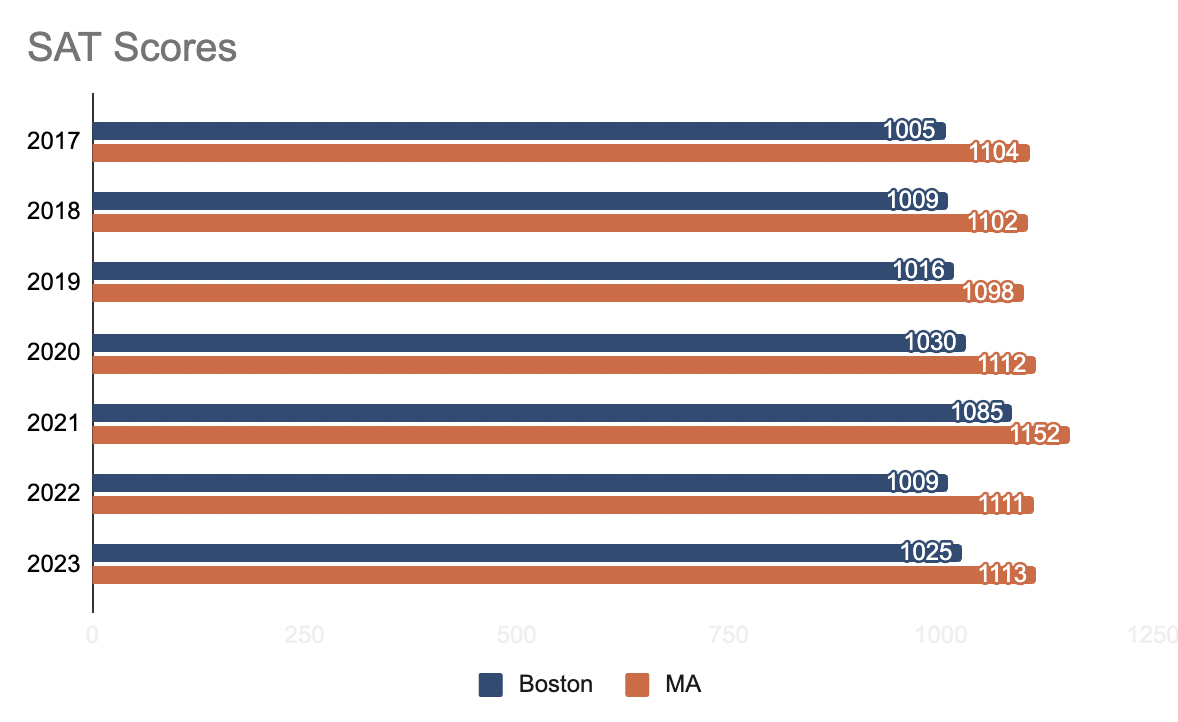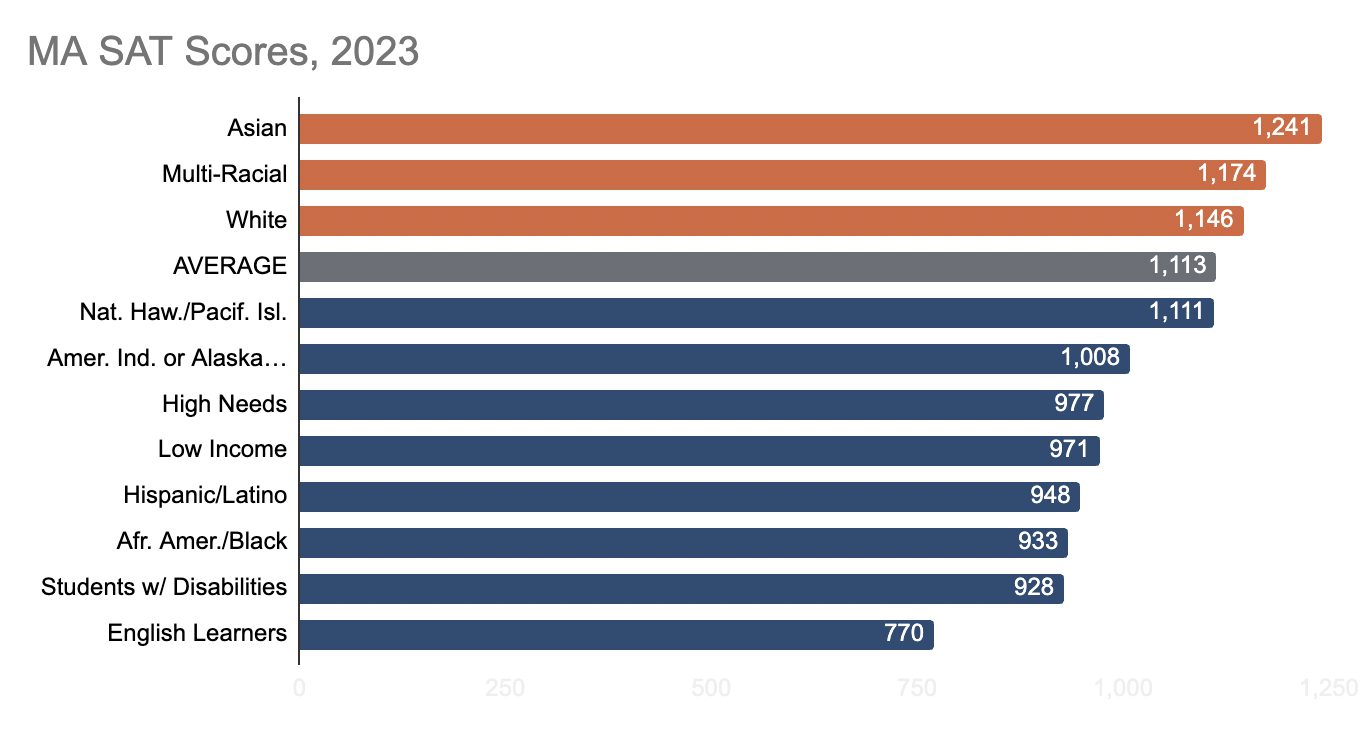FYI from BSF, 3.15.24
With last weekend’s administration, the SAT is officially shorter and online.
That is not the only reason why that assessment has been in the news recently. Data is compelling a growing number of colleges (including UT Austin this week) to reinstate their SAT requirement.
The assertion that the SAT is biased (even racist) and the disruption of the pandemic resulted in many fewer colleges and universities requiring the exam. Students gladly followed suit by not taking it, as Boston and Massachusetts data show.
2017 is the baseline here, when the SAT dropped its essay and moved back to a 1600-scale. Test taking soared that year, only to decline leading up to and through the pandemic, before recently increasing. Still, many fewer students in Boston (-29%) and Massachusetts (-36%) sat for the SAT last year than seven years ago.
Remarkably, what you don’t see during this time is dramatic change in scores.
Nor dramatic changes in the differences amongst subgroups that underlie those averages.
The last graph is a bit of a Rorschach test. Some would see it as evidence of what is wrong with the SAT and why it needs to be eliminated. Others would see it as evidence of what is wrong with PK-12 and why it needs to reformed. This very much mirrors the recent debates about access to algebra or the potential ballot question to eliminate the MCAS graduation requirement.
Misgivings with the SAT may prove to be moot, as colleges and universities have exhibited a knack for building and driving their market. Even colluding. Ask any family that must contend with the alphabet soup and game theory of early application and decision options.
If the data and research continue to pile up that supports continued use of the SAT - often to the benefit of historically marginalized students - one would expect more and more colleges to require it again.
In that scenario, regardless of your background expertise and opinion, ask yourself one simple, practical question: would you want your own child to do well on the SAT?
Your answer should be what you would want for other people’s children, too.
notes in the margin
No formal steps on the BPS budget this week, but there was a first-of-its-kind working session with City Council yesterday and a new report makes budget recommendations to School Committee.
Is inflation the culprit behind the squeeze in Massachusetts school budgets? If transportation, special education services, health insurance, and utilities are the cited causes, that does not apply to Boston.
It is going to pretty hard to regrow enrollment in Boston area schools if one-quarter of 20-30 year olds are planning to move.
The media feeding frenzy continues on Brockton schools, so you can just google it and pick one of the 20+ articles. Here is the actual report on the district’s financial mismanagement.
Admissions reform is likely coming for Massachusetts vocational schools.
There has been a lot of attention paid to the rise in chronic absenteeism amongst students, but what about teachers? No, that data is not publicly tracked or reported in Massachusetts.
Opposing winds in Massachusetts early education: grants for early education centers may be cut just as the Senate rolls out a new bill for early education expansion.
UMass is looking to triple early college access.
Unlike the SAT, efforts to make the online FAFSA shorter have not been as smooth.




